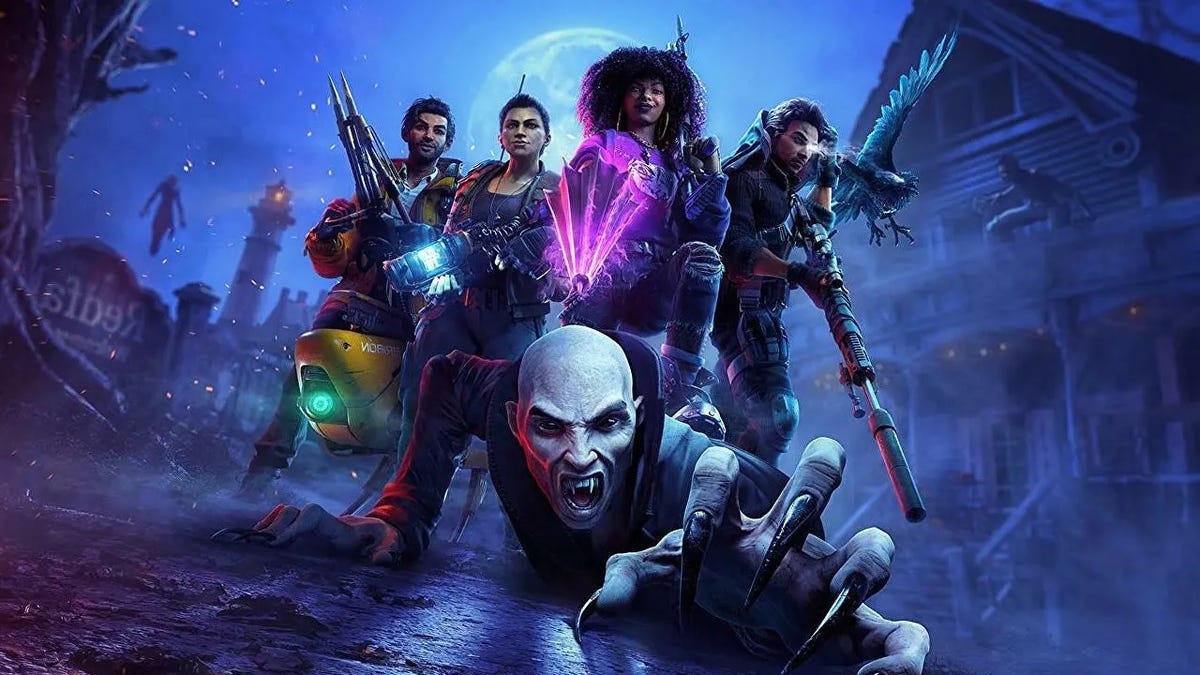While Redfall’s rough launch and poor reviews scores caught many Xbox fans off-guard, Bloomberg now reports that developers at the studio behind it, Arkane Austin, were aware of the issues for years. The online vampire shooter was pitched as a live service game with microtransactions, but production was apparently understaffed and too directionless to deliver on that promise, while Microsoft remained almost completely hands-off.
The company had been promoting Redfall as the next big blockbuster exclusive for Xbox when it launched on May 2. Fans soon discovered the game was riddled with problems, however, from an empty-feeling world to vampire enemies that were occasionally bugged and boring to fight. Microsoft Gaming CEO Phil Spencer appeared on the Kinda Funny Games’ Xbox podcast shortly after release to apologize for the state of the game and promise the company would learn from the debacle. “I’m upset with myself,” he said at the time.
One of the questions on everyone’s mind was why Microsoft not only decided release Redfall, its first $70 game, in its current state, rather than delay it again or cancel it, but why the company had been marketing it so much if it was clear internally that it wouldn’t meet fans’ growing expectations. According to Bloomberg, Microsoft was barely involved in the game’s development outside of making the decision to cancel a PlayStation 5 version of the game after purchasing Bethesda in 2021.
Instead of more oversight or a big influx of new resources backed by the trillion dollar tech giant, Redfall’s development apparently went on just as troubled as it had prior to the acquisition. Bloomberg reports that 70 percent of the team who had made the stealth FPS Prey had left Arkane Austin by the time Redfall shipped, and that the game’s direction was hard to pin down during production, waffling between industry shooter touchstones like Far Cry and Borderlands.
Aimed at appealing to more fans in the wake of previous Arkane games’ poor sales, the online shooter was at one point planned to have an in-game microtransaction economy revolving around cosmetics to bolster profitability, as is the case with most modern shooters. Bloomberg reports those plans were eventually scrapped in 2021 as monetization in games became more controversial. The version of Redfall that’s now out in the wild bares these marks: a multiplayer game part way between an immersive sim, a loot shooter, and a Fortnite live service hangout that feels incomplete and under-resourced.
In his interview with Kinda Funny Games, Spencer defended the creative direction of the game. “One thing I’ll fight is sort of what went wrong, there’s clearly quality and execution things we can do, but one thing I won’t do is push against creative aspirations of our teams,” he said. According to some of the developers Bloomberg spoke with at least, Redfall wasn’t an expression of their creative ambitions, so much as a business mandate from Bethesda. The big question now will be whether the looming $69B Microsoft acquisition and Game Pass business model will give Arkane Austin a shot at making something new, or if the mess around Redfall will remain an albatross around the studio’s neck.




1734894422-0/Copy-of-Untitled-(72)1734894422-0.png)


